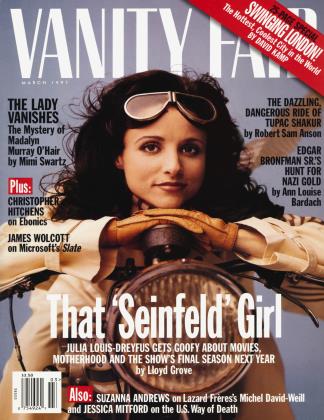Sign In to Your Account
Subscribers have complete access to the archive.
Sign In Not a Subscriber?Join NowAt midnight on June 30, Hong Kong reverts to China, ending 156 years of British rule. The island many feared would become an abandoned shell is now littered with cell phones, Ferraris, and ladies who lunch, as its billionaires snuggle up to their new Communist bosses. Is the party over, or is the fun just beginning?
March 1997 Andrew NeilAt midnight on June 30, Hong Kong reverts to China, ending 156 years of British rule. The island many feared would become an abandoned shell is now littered with cell phones, Ferraris, and ladies who lunch, as its billionaires snuggle up to their new Communist bosses. Is the party over, or is the fun just beginning?
March 1997 Andrew Neil View Full Issue
View Full Issue






Subscribers have complete access to the archive.
Sign In Not a Subscriber?Join Now